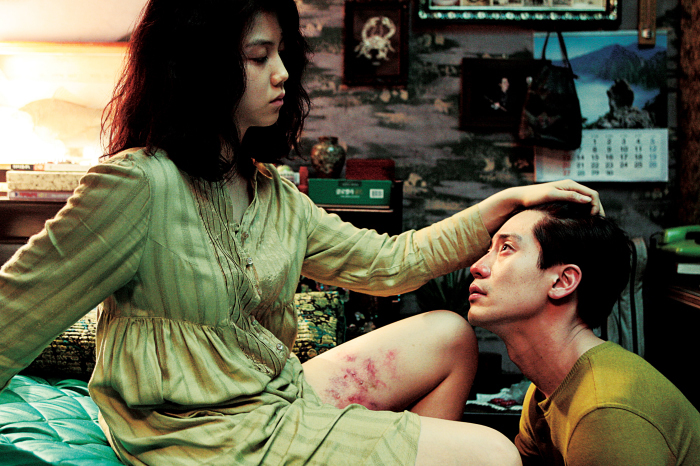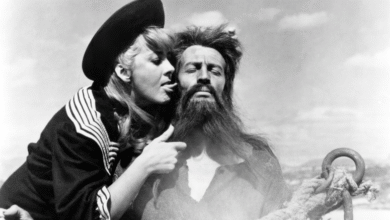Thirst (2009): “Even Monsters Can Love”

A Fever-Dream of Flesh, Faith, and Forbidden Desire
There are vampire films… and then there is Thirst (Bakjwi, 2009).
Directed by the provocative master Park Chan-wook (Oldboy, The Handmaiden), this is not your typical tale of bloodlust. It’s an erotic, violent, and deeply philosophical plunge into sin, salvation, and the raw hunger that makes us human — or perhaps something far worse.
The line that defines the film doesn’t come screaming through fangs or thunder. It arrives like a quiet confession: “Even monsters can love.”
It’s not just a quote. It’s the twisted heart of Thirst — a film where the sacred and the profane collide in an explosion of carnal beauty and existential despair.
A Priest, A Virus, and A Taste for Blood
Sang-hyun is a devout Catholic priest, a man of faith and self-sacrifice. But when he volunteers for a risky medical experiment in hopes of saving lives, something goes terribly wrong. He dies. He comes back. And he is no longer the same.
The virus revives him — but with it comes an unbearable thirst for blood, an enhanced body, and a soul in turmoil. Imagine a man who’s spent his life suppressing every desire suddenly being awakened not just to immortality… but to lust, to rage, to wanting in its purest, most dangerous form.
This is not a vampire film with cloaks and castles. This is body horror meets sacred guilt, where every craving is both ecstasy and agony.

Tae-ju: Catalyst or Cataclysm?
Enter Tae-ju. Trapped in a suffocating marriage to a weak, sickly man, she is all bottled heat and invisible wounds. When she and Sang-hyun begin an affair, it’s not gentle or redemptive. It’s wild, carnal, destructive. They don’t fall in love — they plunge into it, naked and screaming.
Tae-ju is not your victim. She is both Eve and Lilith, muse and executioner. The more Sang-hyun tries to “save” her, the more monstrous she becomes — or perhaps, the more monstrous they both become together.
And yet, through the haze of blood and sex and murder, one truth remains:
Even monsters can love.
But what is that love when it’s built on lies, lust, and murder? Can it redeem — or does it only destroy?
Park Chan-wook’s Cinematic Seduction
Thirst is not just a story — it’s an experience. Park’s direction is sensuous and perverse, balancing painterly compositions with explosive violence. Blood splashes like red ink across white sheets. A kiss feels like a sin. A caress, like a confession.
Every frame is a contradiction: beauty coexists with horror, devotion with depravity. You’re seduced by the visuals and repulsed by what they show — and that’s exactly what Park wants. He doesn’t want you to watch the film. He wants you to feel complicit in it.

Salvation or Damnation?
The final act of Thirst is not a showdown — it’s a reckoning. Sang-hyun, once a priest who sought to heal the world, now watches the world crumble under his touch. The only redemption he can offer Tae-ju — or himself — is silence, darkness, and a kind of poetic self-destruction.
There’s no neat resolution. No heroes. Just two souls, suspended in a moment of mutual destruction, whispering a truth that is both tragic and tender:
Even monsters can love.
But not all love deserves to survive.
Final Thoughts
Thirst is a bold, intoxicating film that drinks deeply from the veins of love, faith, and the abyss of human desire. It doesn’t ask for your approval. It doesn’t apologize for its perversion. It simply stares back at you, blood on its lips, and asks: “If your soul was damned, would love still matter?”
It’s a question that lingers, long after the credits fade… and the thirst remains.





